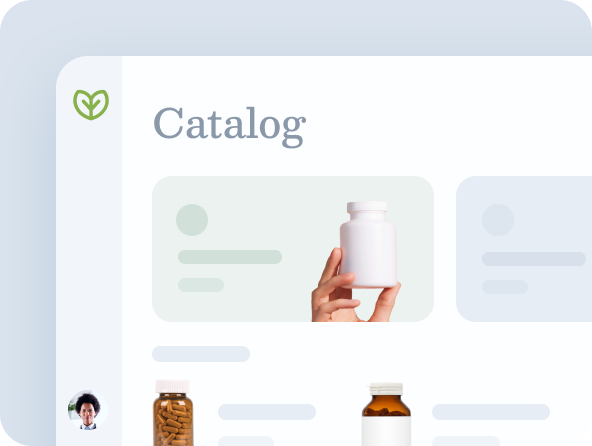Welcome to the first issue of The Script’s women’s health series, dedicated to exploring the intersection of cardiometabolic and hormonal health. This month, we dive into evidence-based protocols and innovative supplements tailored specifically for women. Join us as we uncover transformative insights and advancements in women’s health care.
Dive in, and learn more about:
- Specialized protocols for women and cardiometabolic wellness
- Quality concerns in prenatal supplements
- The latest integrative insights and research
- Dietary ingredients for women’s cardiometabolic health
- Supplement learning opportunities
Specialized protocols for women and cardiometabolic wellness
Protocols for women’s health
Fullscript has an exclusive suite of evidence-based protocols, meticulously crafted to empower healthcare providers in supporting women at every stage of their hormonal and reproductive journeys. Our specialized offerings include oral contraceptive support, ovarian health, fertility support, pregnancy support, and hot flash support. Each protocol features the latest scientific insights to enhance women’s health with precision, ensuring that healthcare providers deliver optimal whole-person care.
Protocols supporting cardiometabolic health
Fullscript also has a pioneering suite of cardiometabolic protocols. Recognizing the critical importance of heart health in women, our collection includes blood pressure support, endothelial and antioxidant support, cholesterol support, and the newly launched statin support and blood sugar support. Each protocol leverages the latest advancements in dietary supplement ingredients to provide healthcare providers with powerful tools for optimizing cardiovascular wellness.
Quality corner
Prenatal multivitamin
Prenatal multivitamins are crucial for the health of pregnant women and their babies, providing essential nutrients like folic acid and DHA. However, contaminants such as heavy metals and microbes can pose significant risks for the developing fetus. For detailed insights from our comprehensive testing of prenatal multivitamins, read our blog.
Integrative insights
Untreated hypertension increases the risk of uterine fibroids
A recent cohort study revealed that middle-aged women with untreated or newly diagnosed hypertension had an increased risk of developing uterine fibroids. Compared to individuals without hypertension, those with newly diagnosed hypertension experienced a 45% increased risk of fibroids, while those with untreated hypertension saw a 19% increased risk. Conversely, participants on antihypertensive medication showed a reduced risk of fibroids—20% lower than those without hypertension and 37% lower among those using ACE inhibitors.
Clinical takeaway: Consider evaluating female patients with newly diagnosed or untreated hypertension for uterine fibroids. Inform them about the clinical link between hypertension and increased fibroid risk, and explain how effective hypertension management can significantly reduce this risk.
The gut microbiota influences the risk of endometriosis
A Mendelian randomized analysis revealed a causal relationship between specific gut microbiota and endometriosis, suggesting that microbial imbalance may play a role in the disease’s pathogenesis. Specifically, the microbial family Prevotellaceae, genus Anaerotruncus, genus Olsenella, genus Oscillospira, and order Bacillales were associated with an increased risk of endometriosis, whereas the class Melainabacteria and the genus Eubacterium ruminantium group were identified as protective against endometriosis.
Clinical takeaway: Consider incorporating microbiome assessment and treatment into a comprehensive, whole-person approach for managing endometriosis.
Essential amino acid supplementation improves hepatic steatosis in adolescents with PCOS and obesity
A small randomized, double-blind, crossover, placebo-controlled trial found that short-term (28 days) supplementation with essential amino acids (EAA) positively influenced various metabolic parameters in adolescents with polycystic ovarian syndrome (PCOS) and obesity. Compared to placebo, supplementation with EAA resulted in significantly lower hepatic steatosis (−0.8%), aspartate aminotransferase (−8%), triglycerides (−9%), and very-low-density lipoprotein triglycerides (−21%). Additionally, participants reported eating fewer carbohydrates and total sugars.
Clinical takeaway: Consider recommending essential amino acids supplementation for nonalcoholic fatty liver disease in adolescents with PCOS.
Supplement ingredients for women’s cardiometabolic health
Collagen peptides
Collagen supplements, renowned for reducing wrinkles and enhancing skin firmness, also improve cardiometabolic health by lowering blood pressure, blood glucose, hemoglobin A1c (HbA1c), triglycerides, cholesterol levels, and high-sensitivity C-reactive protein (hs-CRP), while boosting high-density lipoprotein (HDL). (Kouguchi 2013)(Zhu 2010)
Creatine monohydrate
Creatine has important benefits across different life stages for females, particularly because they naturally have lower creatine stores compared to males. In pre-menopausal women, it boosts exercise performance and strength, whereas in post-menopausal women it enhances skeletal muscle function and mood. Additionally, creatine can improve cognition and mood across all ages, offering substantial health benefits through each phase of life. (Smith-Ryan 2021)
Continuing education
A4M’s Supplement Certification Course – Module 1: Introduction to Supplements
Fullscript is excited to announce the launch of a new supplement certification course in partnership with the American Association of Anti-Aging Medicine (A4M)! This course will equip you with the knowledge and tools to confidently navigate this complex landscape. Learn how to evaluate supplements for safety, efficacy, and quality, and gain practical insights into incorporating evidence-based recommendations into your practice.
You can now use promo code Fullscript30 to get 30% off your registration fee.*
Did you find these resources helpful?






